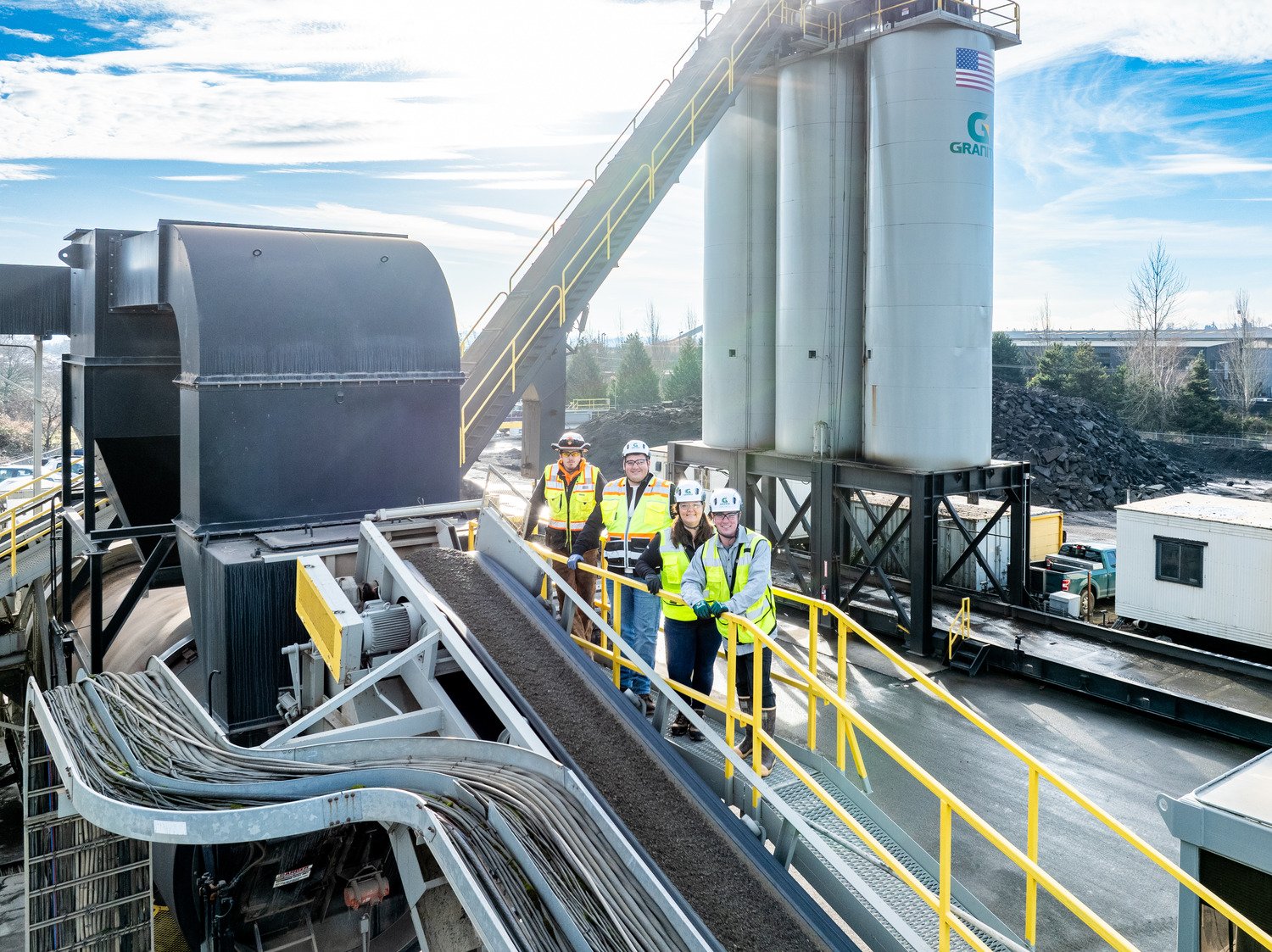
A Step Toward Utah’s Future: The I-80 South Quarry
Once operational, the I-80 South Quarry will serve as a reliable, efficient, and sustainable source of construction materials that are critical to Utah’s economy and our way of life.
In the past decade, Utah’s population has grown at the fastest rate in the country, adding more than half a million residents. The rapidly growing Salt Lake City area will require 258 million tons of various aggregates over the next 20 years – nearly 10 tons per-year for each person.
Failing to develop new, local aggregate sources will have serious consequences on the environment and economy. Materials will need to be transported longer distances, increasing air emissions, road wear, and fuel use. This will make Utah’s housing and infrastructure less affordable.
What You Should Know
Quarries are essential
From the house you live in to the roads you drive on, from the reservoirs we drink from to the power transmission we rely on, from the school your children attend to the hospital down the road—all of our critical infrastructure uses aggregates. And all aggregates come from quarries.
You will benefit from the I-80 South Quarry.
The perfect location
Parleys Canyon provides a unique combination of access to a major urban area while being isolated from homes and other buildings. The location near a major freeway means that transportation of materials will be efficient and cheap, which will help lower costs for infrastructure owners and taxpayers.
The canyon has a long history of mining, meaning the new quarry is not encroaching on pristine wilderness. Developing a quarry in the canyon matches historic and current uses of the area.
Critical materials
The facility will produce limestone hard rock, sand, and key construction aggregates for projects throughout Salt Lake and Summit Counties. Ninety percent of the aggregates mined at this site will be used east of I-15.
Strict Regulations to Protect Public Health
Mining is one of the most highly regulated industries in the United States. Mines in Utah aren’t approved unless they meet strict legal requirements that are enforced by federal, state, and local agencies to protect the public’s health, safety, and welfare. Like any other mine, multiple state agencies will enforce existing federal and state laws to protect Utahns. These agencies include:
Utah Division of Oil, Gas, and Mining (DOGM): Responsible for mine safety and reclamation
Department of Air Quality (DAQ): Ensures that that air emission standards are met
Division of Water Quality (DWQ): Oversees the safety of surface water, ground water, and the management of storm water
Air
Granite will strictly adhere to local, state, and federal air quality requirements. DAQ regulations for emissions will be closely monitored and mitigated as required. Granite will obtain an air quality approval order from DAQ, ensuring no detrimental impact to the surrounding public health and air quality and ensure that operations meet National Ambient Air Quality Standards. Granite will develop and implement a regulation-compliant Fugitive Dust Control Plan, defining the necessary controls to mitigate fugitive dust emissions, managed by DAQ. (More information here)
Water
The I-80 South Quarry will not impact Salt Lake City drinking water or the groundwater in the canyon. Drinking water for SLC is collected at a water treatment facility more than 1.5 miles upstream from the quarry site and piped to the city. It is impossible for activities at the quarry to impact this water source. Regarding ground water, quarry operations do not use any chemicals to process rock and sand, so there is not a risk to groundwater quality.
Who is Granite Construction?
Granite Construction is a long time Utah constructor and construction materials provider and a recognized industry leader in safety and sustainability. Granite has operated the quarry at the mouth of Big Cottonwood Canyon for decades while development has proceeded all around it.
“Granite has a more than 100-year history of responsibly providing construction materials that are essential to America’s infrastructure. The I-80 South Quarry is necessary to support affordability, quality, and sustainability in Utah’s growing economy. This project will serve Utahns for years to come and Granite is dedicated to operating with industry-leading practices that protect the environment and match what citizens of the ‘best-managed state’ have come to expect in their businesses.”
Kyle Larkin, President and CEO of Granite Construction
“From the time I was first elected Mayor in 2004, we had significant interactions with Granite Construction relative to the gravel pit in Cottonwood Heights. I came to appreciate the transparent business culture and the integrity with which Granite conducted business.”
Kelvyn Cullimore, Mayor of Cottonwood Heights City 2005-2017
“We’ve completed iconic Utah projects located in Salt Lake County and Summit County over the years we have worked in Utah. We’re dedicated to serving our community and the state as a whole by providing safe and reliable service.”
Jason Klaumann, Regional Manager for Granite
I-80 South Quarry: Frequently Asked Questions
There has been a lot of misinformation surrounding this project. We are excited to set the record straight.
Granite is America’s Infrastructure Company™
Granite is America’s Infrastructure Company™. Incorporated since 1922, Granite (NYSE:GVA) is one of the largest diversified construction, construction materials, and full-suite civil construction companies in the United States, delivering infrastructure solutions for public and private sector clients throughout the country. Granite’s Code of Conduct and strong Core Values guide the company and its employees to uphold the highest ethical standards. Granite is an industry leader in safety and an award-winning firm in quality and sustainability.
A History of Success in Utah
Deeply embedded in Granite Construction’s 100-year history is a culture of hard work, honesty and getting the job done right. We've completed iconic Utah projects located in Salt Lake County and Summit County over the years we have worked in Utah. We’re dedicated to serving our community and the state as a whole by providing safe and reliable service.




